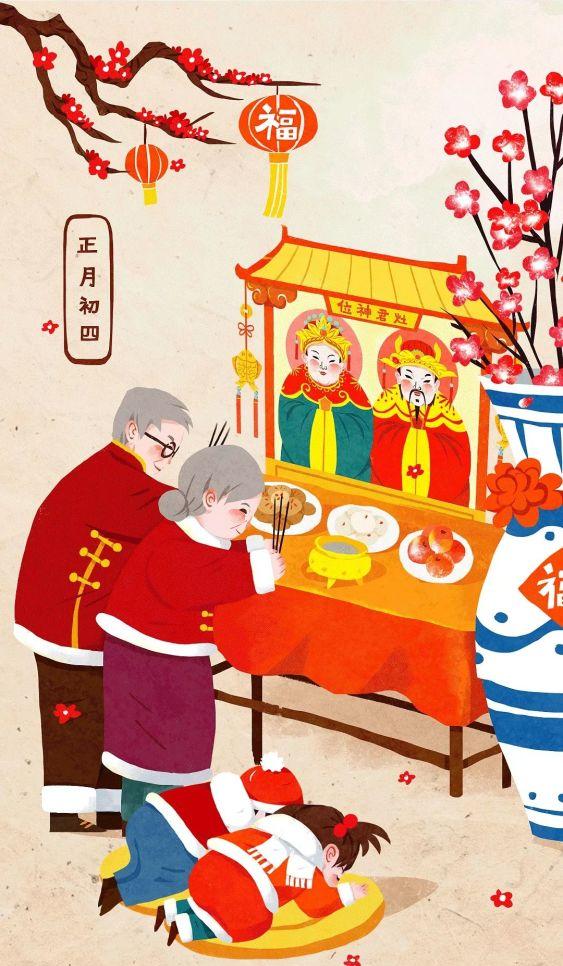During the Spring Festival, there are colorful folk customs all over Neihuang County, and these folklore are indelible memories in the minds of every Neihuang person. "Nian" is both sacred and full of joy for the Neihuang people, each day has a different emphasis, and each town and village has unique customs. Do you know what folklore there are in Neihuang, the fourth day of our Chinese New Year?
The fourth day of the first lunar month is the "Sheep Day" of the creation myth of Nuwa, so the "Three Sheep Kaitai" is a symbol of auspiciousness and a day to welcome the vesta god back to the folk.
Greeting the God of Vesta
Traditionally, the fourth day of the first lunar month is the day to greet the gods, while the twenty-fourth day of the first lunar month is the day to send the gods. As the saying goes, "Sending God early, receiving God late", therefore, according to custom, sending God should be in the early morning, but receiving God should be around 16 o'clock. In the past, every household prepared livestock and fruits and vegetables, and burned incense, gold paper, and firecrackers to show their welcome.
There is also a legend: the first four stoves of the king to "check the household registration", so it is not appropriate to leave home, every household must stay at home, prepare rich fruits, burn incense, light candles and cast firecrackers to show welcome.

Pick up five
On the evening of the fourth day of the Chinese New Year, the general merchants will also pick up the five-way god of wealth, and the market will open on the fifth day of the first month to make a fortune. It is said that the fifth road is on the fifth day of the first year, but why is it said that it is on the night of the fourth day of the first year? It turned out that the fifth day of the first year was the birthday of the popular god of wealth, because everyone was eager for profit, they all wanted to meet the god of wealth a little earlier than others, so this time was a little earlier, even in advance to the evening of the fourth day of the first year, called "grabbing the road head", also known as "receiving the god of wealth".
Eat "Folding Luo"
In addition, on the fourth day of the Chinese New Year, the whole family also eats "folding luo" together. The so-called folding is a smorgasbord of meals left over from a few days to clean up the New Year goods.
Today these traditional folklore are a thing of the past. Some folk customs include the promotion of filial piety, reasonable arrangement of meals in combination with the seasons, and attention to respect for the elderly and love for children, but there are also some feudal superstitious folk customs. As modern people, we should look at these folk customs objectively and rationally, inherit and carry forward the positive components, abandon feudal superstitious ideas, and let the folk traditions be carried forward healthily in modern life and truly be used by us.
Source: Chinese Folklore Network, "Spring Festival and Chinese New Year's Eve", Chen Xiuling, Dong Sheng
Image source: Visual China